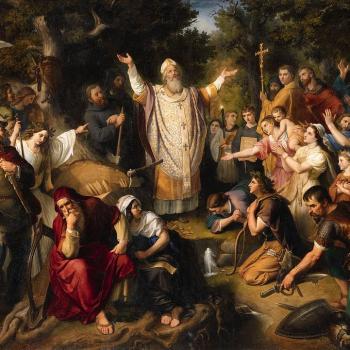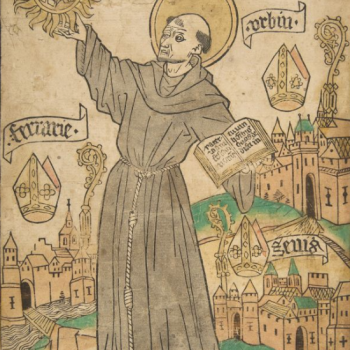
Fellow blogger and Orthodox know-it-all Silouan Thompson recently pointed out the following story to me from Diana Butler Bass’ book A People’s History of Christianity: The Other Side of the Story.
I can’t say I’ve ever run into this myself, but I do think it’s difficult for many of us who come from churches of the reformation to square our view of the church, and the reality that for much of Christian history people simply didn’t think that way.
Listen to what Bass writes:
“In the 1990s, I taught history and theology at an evangelical college, a place where the students were serious young Christians. One day, lecturing on the medieval church and the Crusades, I explained how in 1095 Pope Urban II launched a holy war against Muslims. Most of the students took notes. One young woman, looking very worried by the idea of Christians starting a war, shot up her hand. “Professor,” she began, clearly wanting to blame Roman Catholics for the affair, “what did the Protestants say about this?”
“Well,” I answered slowly, “there were no Protestants in 1095.” I did not have the heart to tell her that Protestantism would not exist until more than four hundred years later.
Puzzled, she blurted out, “But where were they?”
At the present juncture of history, Western Christianity is suffering from a bad case of spiritual amnesia. Even those who claim to be devout or conservative often know little about the history of their faith traditions. Our loss of memory began more than two centuries ago, at the high tide of the Enlightenment. As modern society developed, the condition of broken memory — being disconnected from the past — became more widespread. Indeed, in the words of one French Catholic thinker, the primary spiritual dilemma of contemporary religion is the “loss and reconstruction” of memory.”
How much do you know about where your brand of religion came from? Theology doesn’t drop from the sky. Much of the theology that makes Protestants distinctive come out of bloody history, and cultural particularities.
What background are you? What’s your story?












